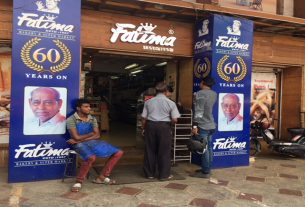Policies against discrimination still needed, says activist.
If you are looking forward to the Supreme Court’s judgement towards same sex marriage, you might want to know about the homophobia held by some political parties.
M G Mahesh, Spokesperson of Bharatiya Janata Party (BJP) said, “We will not accept the concept of same-sex marriages, neither will our Indian culture.” The party has compassion for Gay, Lesbian, Bisexual, Transgender, Queer, Intersex, and Asexual (LGBTQIA+), but the concept of them getting married is unnatural. Mahesh and the BJP look at them only in terms of humanitarian grounds and feel that they should be provided with all the constitutional rights
Article 377 of Indian Penal Code (IPC) criminalised homosexual intercourse which was considered ‘against the order of nature’ under the code. In 2018, Supreme Court decriminalised same-sex relations between homosexuals, giving them rights to make such decisions independently. This year, on March 13, the Supreme Court will take a decision on whether same sex marriages should be legalised or not.
Mahesh addedthat the party will abide by the Supreme Court’s decision if it comes in favour of same sex marriage. Aaditya Pandey, who is openly gay feels that the term ‘same-sex marriage’ should be done away with. It excludes non-binary and trans folks who wish to get married. Personally, Pandey does not believe in the institution of marriage. ”I do not really care about marriage. But there are certain LGBTQIA+ sections that want to get married and want legal recognition for the same.”
Pandey thinks that there should be strict legal policies against workplaces and organisations that discriminate their employees on the basis of their gender and sexuality. Sometimes, LGBTQIA+ members are not given a certain job because it requires more ‘masculine’ or heterosexual approach. Pandey added, “There is a need for an efficient way for trans people to get their identity, educational and other important documents changed after their gender affirming surgeries.
Vinay Chandran, Director of Swabhava Non-Governmental Organisation (NGO) explained the needs of the community, “Legalising same sex-marriage is important, but it will not change the way LGBTQIA+ relationships and identities are viewed in India. Social attitudes have not yet changed.”
Veena Serrao, Leader of Aam Aadmi Party (AAP) said, “Our culture will be impacted if same sex-marriage gets legalised.” There is a stigma around the LGBTQIA+ community that needs to be removed. She added that many parents still find it difficult to accept their children when they come out of the closet. “They need to understand that with time, we need to change, said Serrao
Chandran said that they need the right to choose their own partners and have equal opportunities at employment. Most importantly, they need a non-discriminatory environment where they are respected along with their social values. Chandran added, “Our community requires anti-discrimination policies across the board in all sectors of society, like the Supreme Court’s judgement on Section 377 in 2018 intended.”
Following the decriminalisation of Article 377, Serrao expects the Supreme Court to pass a judgement in favour of the LGBTQIA+ people.
Deepak CN, General Secretary of Karnataka Rashtra Samiti (KRS) Party said, “We think, it is important to respect LGBTQIA+ community and respect their inclusiveness. They should also have liberty to live and make their own decision in terms of marriage according to the Article 21 of Constitution.”
He added, “Whether the Supreme Court’s decision comes in favour of ‘same sex marriages’ or not, I think these people will do whatever they want. But legalising it would be better, since it will give them dignity, respect and more rights.” The KRS Party has three to four LGBTQIA+ members. Just like the reservations for Scheduled Caste (SC) and Scheduled Tribe (ST), Deepak believes that there should be reservations for the people belonging to LGBTQIA+ community, to give them equal respect and opportunities.
To build a more queer-supportive society, inclusion should start in school, say some. Pandey feels that sex education and queer educators will make the learning process queer-friendly and sensitive. “Such changes will go a long way and eventually the society’s perception will change as well.”



